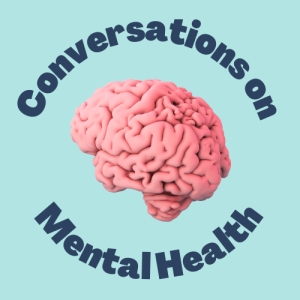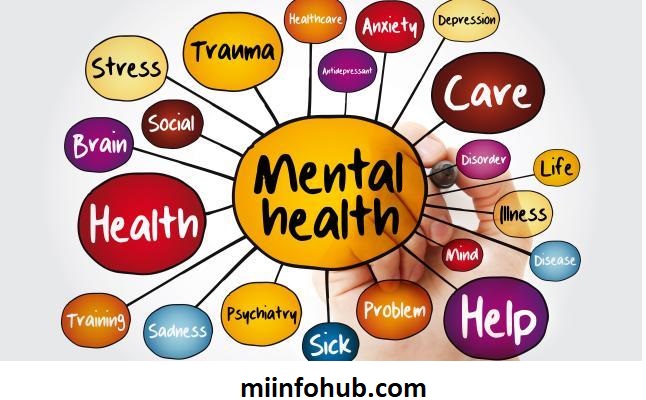What Is Mental Health?
Mental health refers to our emotional, psychological, and social well-being. It affects how we think, feel, and act in daily life. Good mental health is essential for coping with stress, relating to others, and making decisions. It encompasses a range of conditions, including anxiety, depression, and personality disorders, and is influenced by various factors such as genetics, environment, and life experiences. Mental well-being is crucial for promoting overall well-being and fostering a supportive community.

Understanding Mental Health And Its Importance
Understanding mental health is essential for recognizing its significant role in overall well-being. Good mental well-being encompasses emotional, psychological, and social aspects, influencing how we think, feel, and act. It affects our ability to cope with stress, build relationships, and make decisions. Prioritizing health is vital because it impacts physical health, productivity, and quality of life. Awareness and education about mental well-being can reduce stigma, encourage open conversations, and promote access to support. By fostering a culture that values health, we can create healthier communities and empower individuals to seek help when needed.

Common Mental Health Disorders: Signs And Symptoms
Common mental health disorders include anxiety disorders, depression, bipolar disorder, schizophrenia, and obsessive-compulsive disorder (OCD). Each of these conditions has distinct signs and symptoms.
- Anxiety Disorders: Symptoms may include excessive worry, restlessness, fatigue, difficulty concentrating, and physical symptoms like a rapid heartbeat or sweating.
- Depression: Common signs are persistent sadness, loss of interest in activities, changes in appetite, sleep disturbances, and feelings of hopelessness or worthlessness.
- Bipolar Disorder: Individuals experience mood swings ranging from depressive lows to manic highs. Symptoms can include extreme changes in energy, activity levels, and sleep patterns.
- Schizophrenia: This disorder often manifests as delusions, hallucinations, disorganized thinking, and emotional flatness. It can severely impact daily functioning.
- Obsessive-Compulsive Disorder (OCD): Symptoms include intrusive thoughts (obsessions) and repetitive behaviors (compulsions) that individuals feel compelled to perform to reduce anxiety.

Factors Affecting Mental Health Across Different Life Stages
Mental well-being can be influenced by various factors throughout different life stages, from childhood to old age. Understanding these factors is essential for promoting well-being at every stage of life.
- Childhood: Early experiences, including family dynamics, trauma, and exposure to violence, can significantly impact mental well-being. Supportive parenting, stable environments, and positive school experiences foster resilience.
- Adolescence: Hormonal changes, social pressures, and identity exploration create unique challenges. Issues like bullying, peer relationships, and academic stress can contribute to anxiety and depression.
- Young Adulthood: Transitioning to adulthood often involves significant life changes, such as pursuing higher education, starting a career, and forming romantic relationships. Stressors like financial pressures and job insecurity can affect mental well-being.
- Midlife: This stage often brings challenges related to career pressures, parenting teenagers, and caring for aging parents. Additionally, personal health issues or a sense of unfulfilled potential can lead to anxiety or depression.
- Older Age: Aging may involve coping with physical decline, loss of loved ones, and social isolation. Mental well-being conditions, such as depression and dementia, can be prevalent, emphasizing the need for support and social engagement.
The Role Of Stigma And Its Impact
Stigma plays a significant role in shaping attitudes toward Mental well-being, often leading to discrimination and marginalization of those affected by Mental well-being disorders.
- Definition of Stigma: Stigma refers to the negative perceptions and attitudes society holds toward individuals with Mental well-being conditions. It can manifest as labeling, stereotyping, and social exclusion.
- Impact on Individuals: Stigmatization can discourage individuals from seeking help due to fear of judgment or misunderstanding. This often leads to feelings of shame, isolation, and low self-esteem, exacerbating Mental well-being issues.
- Barriers to Treatment: The fear of being stigmatized can prevent individuals from accessing necessary health services. Many may avoid therapy or medication, resulting in untreated conditions and worsening health.
- Influence on Recovery: Stigma can hinder recovery by creating an environment where individuals feel unsupported. When people believe they will be judged, they may be less likely to share their struggles, impeding progress.
- Changing Perceptions: Addressing stigma is crucial for improving health outcomes. Public awareness campaigns, education, and open discussions about Mental well-being can help shift societal attitudes and promote understanding.
Cultural Perspectives On Mental well-being And Treatment
Cultural beliefs significantly shape perceptions and treatment of health. In many cultures, health issues are viewed as personal weaknesses, leading to stigma and reluctance to seek help. Conversely, some cultures interpret mental illness through a spiritual lens, attributing it to supernatural forces.
Treatment methods also vary. Western approaches often focus on medication and psychotherapy, while other cultures may prioritize traditional healing practices, community support, or holistic methods. For instance, Indigenous cultures may use rituals and herbal remedies to address health.
Understanding these cultural perspectives is vital for Mental well-being professionals. Culturally competent care fosters trust and improves treatment outcomes by respecting clients’ beliefs and integrating them into care. Acknowledging cultural diversity in Mental well-being is essential for effectively supporting individuals’ well-being.
The Importance Of Early Intervention In Mental well-being
Early intervention in Mental well-being is crucial for improving long-term outcomes. Addressing Mental well-being issues at an early stage can prevent the worsening of symptoms and reduce the risk of developing more severe disorders. Early detection allows individuals to receive appropriate support and treatment, which can lead to quicker recovery and better overall well-being.
Recognizing signs of Mental well-being challenges early—such as changes in mood, behavior, or social interactions—enables timely action. This proactive approach not only benefits individuals but also eases the burden on healthcare systems by potentially reducing hospitalizations and the need for intensive treatments later on.
Furthermore, early intervention fosters resilience and coping skills, empowering individuals to manage their Mental well-being more effectively. By prioritizing early intervention, we can create a healthier society that supports mental well-being and encourages individuals to seek help without stigma.
Coping Strategies For Mental Well-Being
Coping strategies are essential tools for maintaining mental well-being and managing stress effectively. Here are some key strategies:
- Practice Mindfulness and Meditation: Engaging in mindfulness practices helps ground individuals in the present moment. Meditation can reduce anxiety and improve emotional regulation.
- Physical Activity: Regular exercise releases endorphins, which can boost mood and reduce feelings of stress. Activities like walking, running, or yoga can be particularly beneficial.
- Establish a Routine: Creating a structured daily routine provides a sense of normalcy and control. Consistent schedules for sleeping, eating, and working can enhance mental stability.
- Connect with Others: Building and maintaining social connections is vital for Mental well-being. Talking with friends or family about feelings can provide support and reduce feelings of isolation.
- Limit Exposure to Stressors: Identifying and minimizing exposure to triggers, such as negative news or toxic relationships, can help protect mental well-being.
- Engage in Hobbies: Pursuing enjoyable activities, whether it’s reading, painting, or gardening, can provide an emotional outlet and help divert attention from stressors.
- Seek Professional Help: Consulting a Mental well-being professional can provide guidance and strategies tailored to individual needs. Therapy can offer support and coping techniques.
- Practice Self-Compassion: Being kind to oneself and recognizing that it’s okay to feel overwhelmed can help mitigate negative self-talk and promote resilience.
Seeking Professional Help: Resources And Support
Seeking professional help for Mental well-being is crucial for recovery. It’s important to recognize when feelings of sadness, anxiety, or stress interfere with daily life. Mental well-being professionals, such as psychologists and counselors, can provide valuable support. Resources like online directories help individuals find qualified providers, and support groups foster a sense of community. In emergencies, crisis hotlines offer immediate assistance. Teletherapy has also made access easier. Viewing help-seeking as a strength reduces stigma and encourages others to prioritize their mental well-being.
The Interconnection Between Mental And Physical Health
The interconnection between mental and physical health is significant and complex. Mental well-being conditions can lead to physical health issues, while chronic physical conditions can adversely affect mental well-being. For instance, anxiety and depression can contribute to conditions like heart disease and obesity. Conversely, living with chronic pain or serious illness can lead to stress and depressive symptoms. Maintaining overall health requires addressing both mental and physical aspects. Regular exercise, a balanced diet, and mindfulness practices can enhance both mental and physical health. A holistic approach fosters resilience and improves quality of life.
Mental well-being In The Workplace And Global Initiatives
Mental well-being in the workplace is increasingly recognized as crucial for employee well-being and organizational success. A supportive work environment can significantly reduce stress, improve productivity, and enhance job satisfaction. Employers are encouraged to implement Mental well-being policies, provide resources, and create open dialogues about Mental well-being issues. Global initiatives, such as the World Health Organization’s (WHO) programs, aim to promote mental well-being across diverse work settings. These initiatives focus on reducing stigma, increasing awareness, and encouraging mental health support systems. Prioritizing Mental well-being in the workplace leads to healthier employees and thriving organizations.

